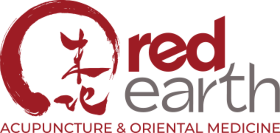For centuries, two dominant medical traditions have shaped the way we approach health and healing: Western medicine and Traditional Chinese Medicine (Asian Medicine). While both aim to restore health, their methods and philosophies are vastly different. Western medicine is rooted in scientific analysis, diagnosing and treating specific diseases based on biological mechanisms. Asian Medicine, on the other hand, views the body as an interconnected whole, seeking balance and harmony rather than isolating symptoms.
Western medicine follows a reductionist approach, focusing on specific organs, pathogens, and cellular functions. It relies heavily on laboratory tests, pharmaceuticals, and surgical interventions. Asian Medicine, by contrast, is holistic. Practitioners analyze patterns of disharmony in the body, considering elements like Qi (vital energy), Hot and Cold Balance, and the body’s response to external and internal influences.
One of the key distinctions between these two medical systems is their approach to diagnosis and treatment. Western medicine prioritizes identifying the cause of a disease at a microscopic level—whether it be a bacterial infection, a genetic mutation, or a hormonal imbalance. Treatments are then developed to target these specific issues, often through medication, surgery, or advanced therapies. In contrast, Asian Medicine views symptoms as part of a broader pattern. A person with recurring headaches, for example, may not receive the same treatment as another person with headaches, because their underlying disharmony could be different. One individual might have a deficiency in Yin energy, while another could have excess internal heat. Treatment would be customized based on their unique constitution and symptoms.
In addition to focusing on physical symptoms, Asian Medicine incorporates emotional and spiritual aspects of health. It considers how stress, grief, anger, and even joy can affect the body’s energy systems. This interconnected perspective fosters a more compassionate and individualized treatment process. A Asian Medicine practitioner will inquire about sleep, digestion, stress, diet, and lifestyle habits in order to get a full picture of a patient’s health as all of these factors indicate the health of a person.
Both approaches have their strengths. Western medicine excels in acute care, surgery, and evidence-based treatments, while Asian Medicine offers profound insights into chronic conditions, preventative care, and restoring equilibrium. Many people today seek an integrative approach, using the precision of Western diagnostics alongside the holistic treatments of Asian Medicine. By understanding these differences, individuals can make informed healthcare choices that integrate the best of both worlds.
